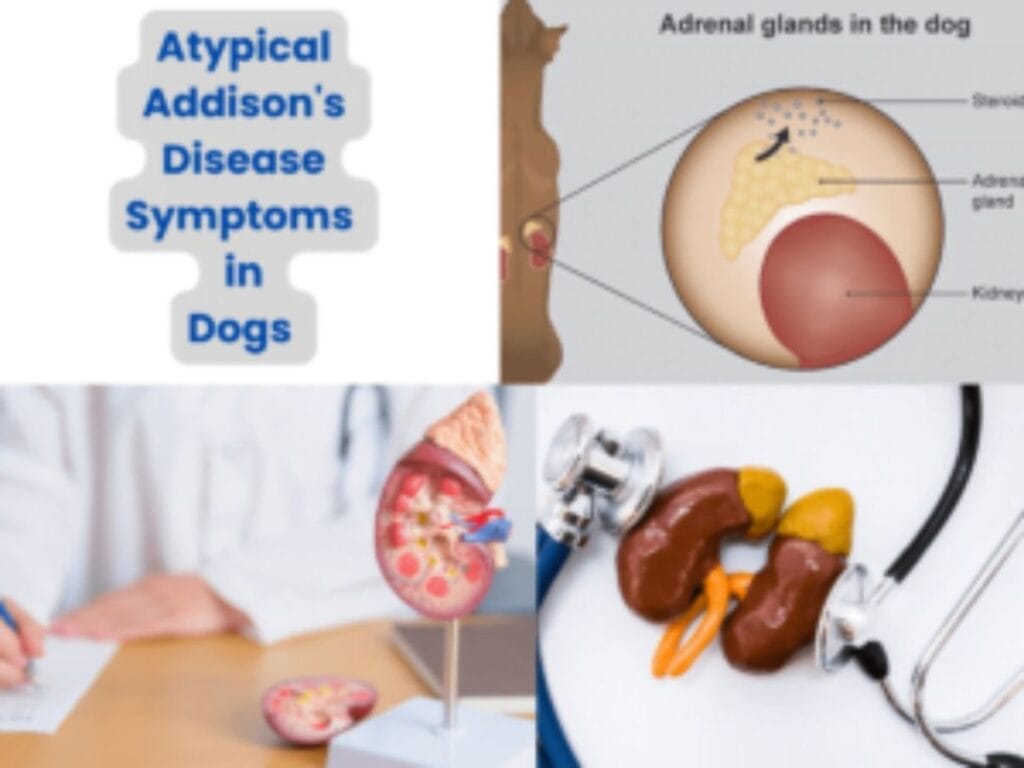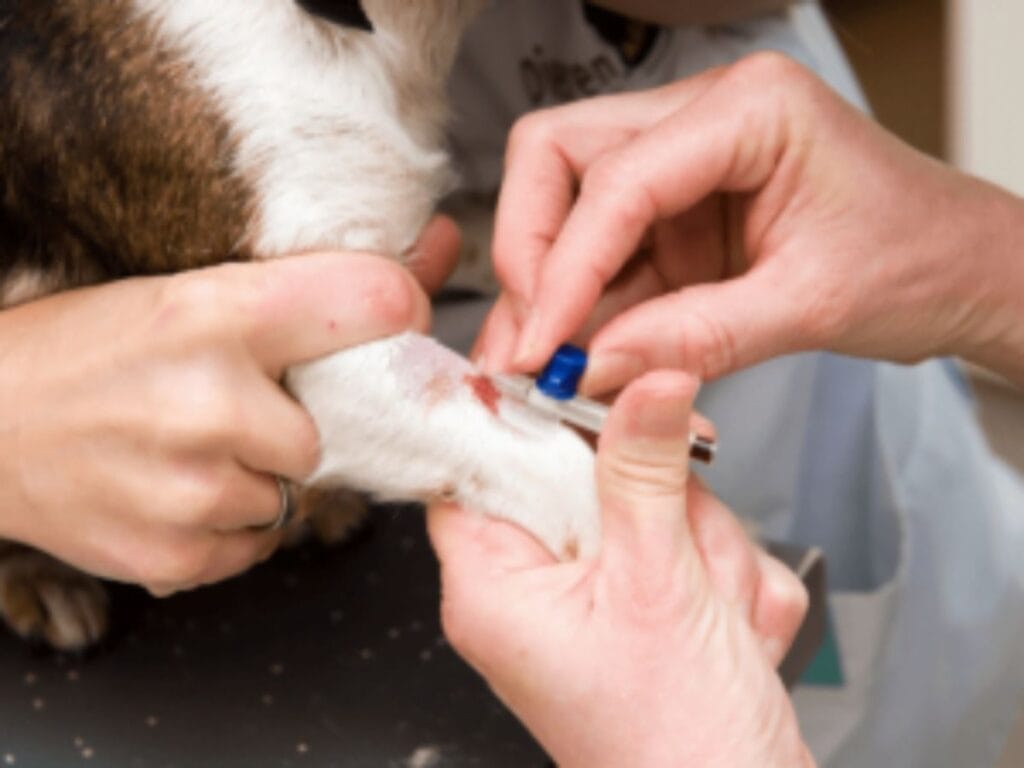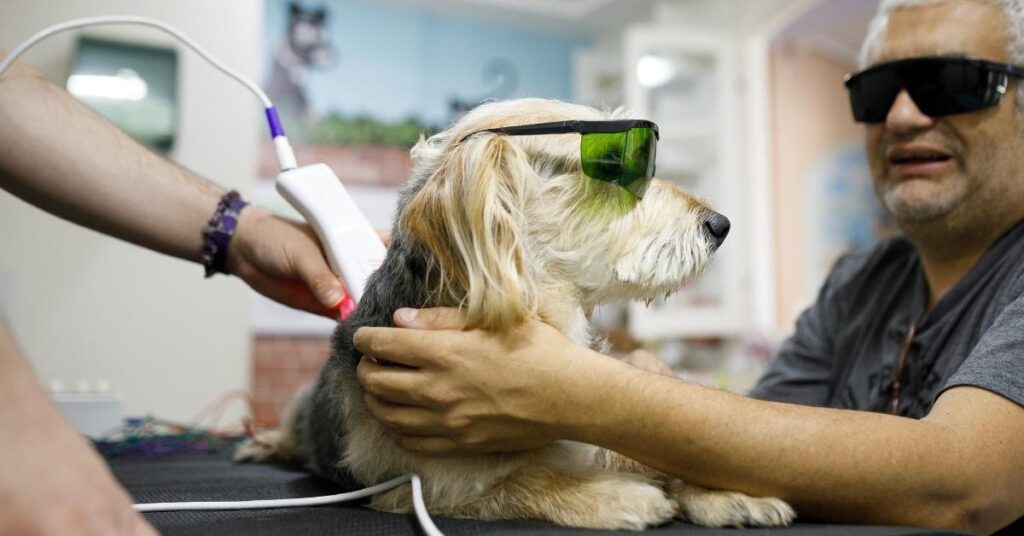Now Reading: Atypical Addison’s Disease in Dogs: Symptoms to Watch Out For
- 01
Atypical Addison’s Disease in Dogs: Symptoms to Watch Out For

Atypical Addison’s Disease in Dogs: Symptoms to Watch Out For
As a dog owner, you must give them the royal treatment they deserve. However, understanding the various health issues affecting dogs is crucial for their well-being. One such condition is atypical Addison’s disease in dogs. This article will delve into what atypical Addison’s disease is, the symptoms you should watch for, and the treatment options available.
What is Atypical Addison’s Disease in Dogs?
Atypical Addison’s disease, also known as primary adrenal insufficiency, occurs when a dog’s adrenal glands do not produce enough hormones, particularly cortisol and aldosterone. Unlike typical Addison’s disease, which affects both hormone levels, atypical Addison’s primarily impacts cortisol production. This condition can be tricky to diagnose, as its symptoms can mimic other health issues.

Symptoms of Atypical Addison’s Disease in Dogs
Recognizing the symptoms is vital for early intervention. Here are some familiar atypical Addison’s disease in dogs symptoms to watch out for:
1. Lethargy
If your dog seems unusually tired or lacks energy, it could be a sign of atypical Addison’s disease. Dogs may want to refrain from engaging in their usual activities or playtime, which can be concerning.
2. Loss of Appetite
A decreased interest in food or sudden weight loss can indicate underlying health issues, including atypical Addison’s disease. If your dog is refusing meals or eating significantly less, it’s essential to consult your veterinarian.
3. Vomiting and Diarrhea
Gastrointestinal upset, including vomiting and diarrhea, can be symptoms of atypical Addison’s disease in dogs. These signs can lead to dehydration, making it even more critical to seek veterinary care promptly.

4. Increased Thirst and Urination
Atypical Addison’s can cause changes in your dog’s drinking and urination habits. If you notice your dog drinking more water than usual or having accidents in the house, it may be time to investigate further.
5. Shaking or Trembling
Some dogs may exhibit shaking or trembling, which can be attributed to low cortisol levels. This sign can be a red flag and should not be ignored.
6. Weakness or Collapse
In severe cases, dogs may experience weakness or even collapse. This is a medical emergency, and immediate veterinary attention is necessary.
Diagnosing Atypical Addison’s Disease in Dogs
If you suspect your dog may have atypical Addison’s disease, your veterinarian will likely perform a series of tests to confirm the diagnosis. These may include:
Blood Tests
To check for electrolyte imbalances and cortisol levels.

ACTH Stimulation Test
It is performed to note the adrenal glands’ response to adrenocorticotropic hormone (ACTH).
Urinalysis
To assess kidney function and detect any abnormalities.
Early diagnosis is crucial for effective treatment, so don’t hesitate to contact your vet if you notice any of the above-mentioned symptoms.
Treatment for Atypical Addison’s Disease in Dogs
Once diagnosed, atypical Addison’s disease in dogs treatment typically involves hormone replacement therapy. Here are the standard treatment options:
1. Corticosteroids
Most dogs with atypical Addison’s disease will require lifelong corticosteroid therapy to replace the cortisol their bodies aren’t producing. Common medications include prednisone or hydrocortisone. Your veterinarian will determine the appropriate dosage based on your dog’s needs.
2. Monitoring Electrolyte Levels
Regular check-ups are essential to monitor your dog’s electrolyte levels and overall health. Your vet may recommend periodic blood tests to ensure the treatment is effective and to make any necessary adjustments.
3. Dietary Considerations
A high-quality diet can support your dog’s overall health. Some veterinarians may recommend a diet with higher sodium levels, as dogs with atypical Addison’s may have lower sodium levels. Always consult your vet before making any dietary changes.
What To Explore Canine Brewer’s Yeast?
4. Emergency Care
In cases where your dog experiences an adrenal crisis, immediate veterinary care is crucial. This may involve intravenous fluids and medications to stabilize your dog. Knowing the symptoms that indicate an emergency can save your dog’s life.
Living with Atypical Addison’s Disease
While a diagnosis of atypical Addison’s disease may seem daunting, many dogs live happy, fulfilling lives with proper management. Here are some tips for managing your dog’s condition:
Regular Vet Visits
Routine check-ups are essential for monitoring your dog’s health and medication effectiveness.
Medication Compliance
Administer medications as prescribed and never skip doses.
Watch for Symptoms
Stay vigilant for any changes in behavior or health, and report these to your vet immediately.
Educate Yourself
Understanding atypical Addison’s disease in dogs will empower you to make informed decisions about your pet’s care.
Don’t Forget To Read: 5 Pro Tips For Pet’s Care
Key takeaways
Atypical Addison’s disease in dogs can be challenging, but your furry friend can lead a healthy, happy life with awareness and proper treatment. Recognizing the symptoms early and seeking veterinary care is crucial for effective management. By staying informed and proactive, you can ensure your dog receives the best care possible. If you have any worries about your dog’s health, contact your veterinarian for advice. Enjoy the eternal bonding with your pampered partners!













